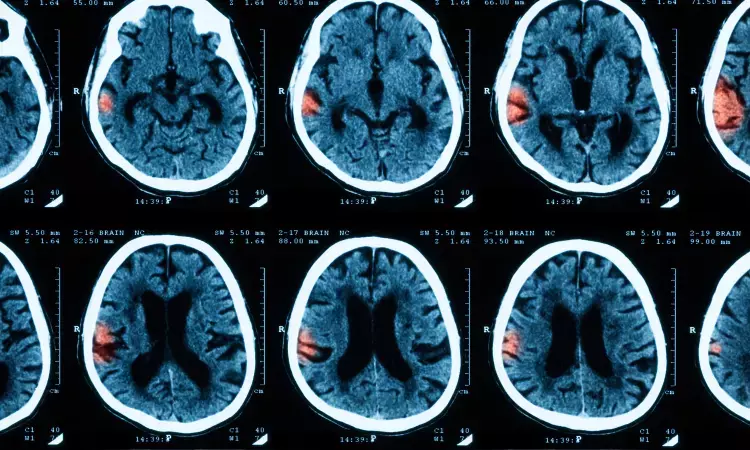- Home
- Medical news & Guidelines
- Anesthesiology
- Cardiology and CTVS
- Critical Care
- Dentistry
- Dermatology
- Diabetes and Endocrinology
- ENT
- Gastroenterology
- Medicine
- Nephrology
- Neurology
- Obstretics-Gynaecology
- Oncology
- Ophthalmology
- Orthopaedics
- Pediatrics-Neonatology
- Psychiatry
- Pulmonology
- Radiology
- Surgery
- Urology
- Laboratory Medicine
- Diet
- Nursing
- Paramedical
- Physiotherapy
- Health news
- Fact Check
- Bone Health Fact Check
- Brain Health Fact Check
- Cancer Related Fact Check
- Child Care Fact Check
- Dental and oral health fact check
- Diabetes and metabolic health fact check
- Diet and Nutrition Fact Check
- Eye and ENT Care Fact Check
- Fitness fact check
- Gut health fact check
- Heart health fact check
- Kidney health fact check
- Medical education fact check
- Men's health fact check
- Respiratory fact check
- Skin and hair care fact check
- Vaccine and Immunization fact check
- Women's health fact check
- AYUSH
- State News
- Andaman and Nicobar Islands
- Andhra Pradesh
- Arunachal Pradesh
- Assam
- Bihar
- Chandigarh
- Chattisgarh
- Dadra and Nagar Haveli
- Daman and Diu
- Delhi
- Goa
- Gujarat
- Haryana
- Himachal Pradesh
- Jammu & Kashmir
- Jharkhand
- Karnataka
- Kerala
- Ladakh
- Lakshadweep
- Madhya Pradesh
- Maharashtra
- Manipur
- Meghalaya
- Mizoram
- Nagaland
- Odisha
- Puducherry
- Punjab
- Rajasthan
- Sikkim
- Tamil Nadu
- Telangana
- Tripura
- Uttar Pradesh
- Uttrakhand
- West Bengal
- Medical Education
- Industry
High BP reported among ICH survivors after treatment of Depression with SNRIs and SSRIs

Boston: A study published in STROKE, AHA Journals has concluded that Clinicians should closely monitor Blood Pressure (BP) in Intracerebral Hemorrhage (ICH) survivors treated for Depression with selective serotonin reuptake inhibitor and noradrenaline-serotonin reuptake inhibitor.
It is already known that in ICH, for improving long-term outcomes, BP control is the most crucial intervention. This target treatment goal is achieved by fewer than half of ICH survivors.
One of the factors contributing to inadequate BP control is related to the high risk of poststroke Depression among ICH survivors.
Considering this, a study was conducted by a group of researchers to answer,
Is there any association between depressive symptoms after ICH and inadequate BP control?
Whether treatment with SSRI or norepinephrine-serotonin reuptake inhibitors antidepressants mediate the association between Depression after ICH and BP measurements?
The study's lead researcher was Dr Keins from the Henry and Allison McCance Centre for Brain Health, Boston.
The critical points of the study are:
• The data was from an ICH study conducted at Massachusetts General Hospital (2006 – 2018).
• The data was collected from electronic health records, baseline and follow-up interviews, and CT imaging by semiautomated review.
• Mixed effects models were used to analyze information related to BP measurements, diagnoses of Depression, antidepressant medication use, and medical visits.
• BP measurements (systolic and diastolic) were the primary outcomes measured during long-term follow-up after ICH.
• The study included 1243 ICH patients without a history of pre-stroke Depression.
• The time of median follow-up was 52.8 months
• Nearly 721 patients constituting 58%, were diagnosed with incident depression.
• With the onset of Depression, there was an increase in systolic and diastolic blood pressure with an increase of +8.3 mm Hg, P=0.012 and +4.4 mm Hg, respectively.
• There was a subsequent decrease in systolic (−5.9 mm Hg) and diastolic (−3.4 mm Hg) BP measurements with a resolution of Depression.
• The P values were 0.031 and 0.041 for systolic and diastolic blood pressure.
• There was an association between higher systolic BP measurements and antidepressants, independent of whether depression symptoms were active or not. The P value was <0.05.
The researchers concluded that "ICH survivors display an increase in BP values after depression diagnosis, and it resolves with the resolution of depression symptoms."
Future studies are required to confirm and investigate the mechanisms underlying these associations.
Further reading:
Association of Depression Onset and Treatment With Blood Pressure Control After Intracerebral Hemorrhage
Sophia Keins et al.
BDS, MDS in Periodontics and Implantology
Dr. Aditi Yadav is a BDS, MDS in Periodontics and Implantology. She has a clinical experience of 5 years as a laser dental surgeon. She also has a Diploma in clinical research and pharmacovigilance and is a Certified data scientist. She is currently working as a content developer in e-health services. Dr. Yadav has a keen interest in Medical Journalism and is actively involved in Medical Research writing.
Dr Kamal Kant Kohli-MBBS, DTCD- a chest specialist with more than 30 years of practice and a flair for writing clinical articles, Dr Kamal Kant Kohli joined Medical Dialogues as a Chief Editor of Medical News. Besides writing articles, as an editor, he proofreads and verifies all the medical content published on Medical Dialogues including those coming from journals, studies,medical conferences,guidelines etc. Email: drkohli@medicaldialogues.in. Contact no. 011-43720751


